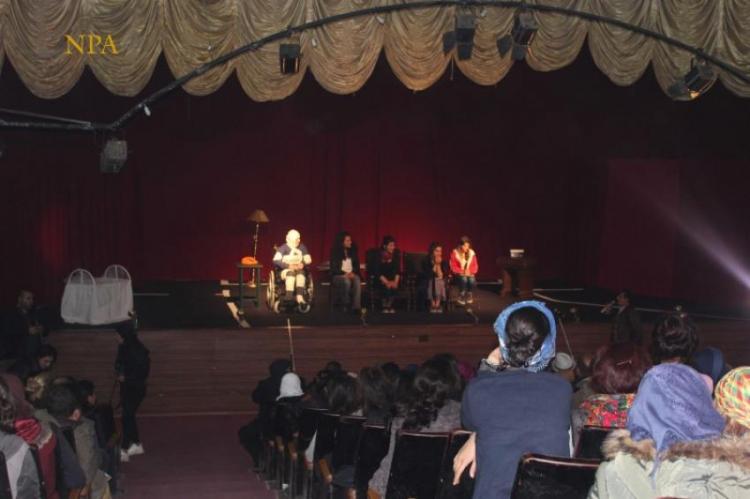Abbas Ali Mousa – Qamishli
“Yakta Theatre Festival” started in Muhammed Sheikho theater in Qamish, in its fourth session after the defeat of ISIS. The festival began its activities on the 27th of March 2019, with a high turnout by the public.
The festival was organized by the “commune of theatre” of the Democratic Society movement (the backbone of the Democratic Self-Administration in the north and east of Syria) as one of the annual periodic festivals in the region.
The festival’s name “Yakta” goes back to the Kurdish actor, who set himself on fire in World’s Theater’s Day, on the 27th of March 2004, in Saadallah AlJabri Square in Aleppo, after presenting a theatrical show, denouncing the arrest of the Kurdistan Workers Party leader(PKK) by The Turkish authorities.
The festival lasted for 10 days, including nine theatrical performances from north Syria, one presentation from Raqqa city titled: “Christmas Eve”, which was presented in the festival’s opening, which dealt with the issue of extremism and violence under the control of “ISIS'”.
Joan Mahmoud, one of the attendees, described the turnout to the North Press Agency as “massive” , citing his presence as “he likes to watch something new, other than the news of war”.
The co-chairman of the Syrian north theater commune Muhammad Ashraf said to North Press,” theater is an answer to injustice and violence, removing a black curtain, because art and theatre have to be at the level of military victories on the ground.”
The presentations dealt with various issues about loss, violence and hope , plus, there were other participating shows for local theatre troupes, those shows were in Kurdish and Arabic languages, in its fourth sessioin.
Plays such as “Christmas Eve, Donkey Shot, The Mountain of Kurds and The only Woman” were shown at the festival.
Shiro Hindi , the filmmaker, pointed out for North Press: “through art, especially theatre, the feelings and emotions of people, who suffered from violence and lost their relatives in the fight against terrorism, are expressed”.
It is worth to mention that Qamishli city was built in 1926, it is of a Kurdish majority in northeast Syria, and includes a mixture of Kurds, Arabs, Syriac, Armenians, and Assyrians, located on the border with Turkey. The city is strategically important , being a political and economic center of the east Euphrates areas.

